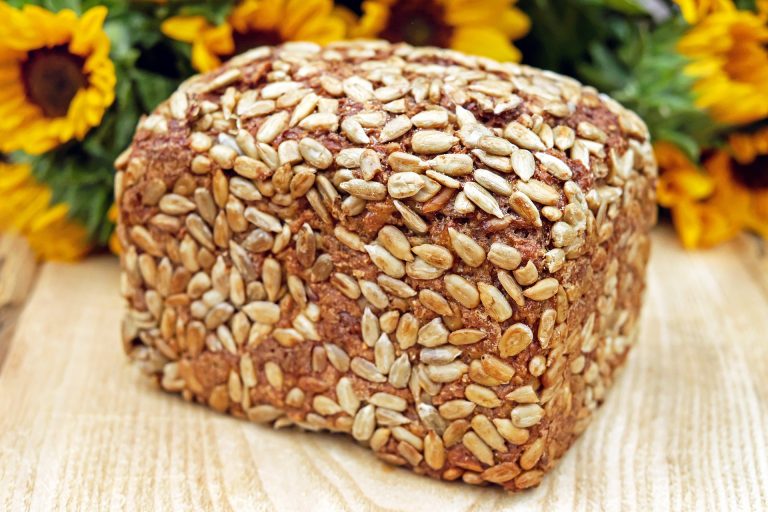When you mention wholegrains to anybody, some don’t know what these are, others relate them to not very tasty versions of their favourite foods such as white bread, white rice, white pasta, whilst others think about the fibre they provide in our diet. However wholegrains are much more than this!
It’s very important to eat enough fibre every day to ensure good gut health. In the UK today the recommended intake for adults is 30 g per day. So what does this look like? A 40 g bowl of All Bran cereal provides approx. 10 g of fibre, whilst two slices of wholemeal toast is 3.5 g, and half a can of baked beans (200 g) provides 7.4 g fibre. Interestingly a medium portion (200 g) plain cooked pasta provides more fibre (3.8 g) than the same amount of brown rice (1.6 g). As you can see it can be quite challenging to get enough fibre into your diet on a daily basis. If you eat five portions of fruit and vegetables a day along with these types of wholegrains you should hit your daily fibre intake of 30 g per day.
What else we can find in wholegrains?
Wholegrains are more than just fibre. Examples of wholegrains are wheat, rye, barley and oats. When these grains are processed, such as the production of flour from wheat, to make the common type of white flour the outer bran is removed. Wholegrain flour by contrast includes the whole wheat kernel and as such is more nutritious. The outer layer of a grain kernel is nutrient dense – is contains insoluble fibres such as xylans and cellulose and soluble fibres such as β-glucans both types essential for many bodily functions. The outer layer also contains proteins, vitamins such as E and B types, minerals (magnesium, manganese, potassium), phytic acid, lipids, antioxidants and plant sterols. If the outer layer is removed in processing a huge proportion of these nutrients are also lost.
Not all wholegrains are made the same, for example oats are rich in the soluble fibre β-glucan whereas rye has a greater mix of fibres and rich in manganese and potassium. This makes it important to add a variety of wholegrains to your diet so you can exploit all the benefits each wholegrain provides.
Benefits of wholegrains consumption

There have been many studies on the benefits of wholegrains and disease risk. There is evidence to suggest that consumption of wholegrains as part of a healthy balanced diet can reduce all-cause mortality by 19%, coronary heart disease incidence by 20%, stroke incidence by 14%, type 2 diabetes by 33%, colorectal cancer by 13% and cancer mortality by 16%. But what is it about wholegrains that protects the body. Dietary fibre does play a key role. Dietary fibre in a meal delays gastric emptying and hence has a lower glycaemic index and hence makes us feel fuller for longer. This in effect helps us to eat less overall and therefore reduces the risk of becoming overweight and obese. Overweight and obesity is a leading cause of diseases including metabolic syndrome (elevated blood pressure, high cholesterol, type 2 diabetes) and some cancers. Also the polyphenolic (antioxidants) and phytochemicals (plant compounds) in wholegrains play an anti-inflammatory role in the body which reduces risk of cancer tumour growth, and development of cardiovascular disease, and reduces insulin sensitivity which in turn lowers risk of developing type 2 diabetes.
There is evidence to suggest that the higher the intake of wholegrains the lower the risk of developing coronary heart disease, the mechanisms of which are associated with lower body weight, blood pressure, insulin resistance and inflammation. Wholegrain oats have a direct effect on blood lipid levels. In a systematic review and meta-analysis of randomised controlled studies a diet rich in wholegrain oats led to a decrease in total cholesterol by 25%, and LDL cholesterol by 5%. The soluble β-glucans in oats have the effect of binding to cholesterol in bile and removing it from the body, they also help prevent the absorption of cholesterol in the gut.
Finally wholegrains are great benefit to our gut microbiota. Wholegrains act as a prebiotic for our gut microbes, in other words they feed our good bacteria which in turn provides many benefits to the body. The gut microbiome is a whole different topic, which is being highly investigated, and the benefits of a healthy gut microbiome are emerging all the time.
Much of the evidence in this blog is attributed to the Bell Institute at www.bellinstitute.com






